The Water Supply & Sanitation Sector at the Urban Unit is committed to delivering technical and professional support and consultancy services to provincial and local government entities, as well as the private sector in Pakistan and abroad, with the goal of achieving sustainable development in line with water supply and sanitation Millennium Development Goals.
Our WSS sector focuses on establishing efficient legal, regulatory, and institutional frameworks to ensure self- sustaining water supply, sanitation, and wastewater treatment services. Additionally, we offer consultancy support for master planning, system design, third-party validation, Geographic Information System (GIS) mapping, and citizen report cards for water supply and sewerage projects integrated with GIS systems. We employ diverse approaches such as facilitating public-private partnerships, supporting company startups, fostering community and business partnerships, and designing innovative technical solutions tailored to client needs.

The Urban Unit in conjunction with the HUD&PHED and WASAs developed detailed five years (2021-26) Business Plans for respective five WASAs of Punjab. Multiple consultation sessions facilitated by HUD&PHED were organized by Urban Unit with WASAs leadership & officials and whole extensive exercise completed in 10 months’ duration with final approval from Cabinet, Resource Mobilization Committee and Finance Minister Punjab.
Developed Business Plan primarily include Tariff Rationalization based on financial modelling, system efficiency improvement strategies and ways to capture the Own Source Revenue (OSR) potential.
The core focus of the planning activity revolved around the major objectives of achieving financial sustainability and enhancing the service delivery levels in cities. Multiple frameworks have been incorporated as part of the process to achieve the said objectives, which can broadly be categorized into Efficiency Improvements; KPIs Targets and Monitoring; Service Delivery Improvements; Tariff Rationalization and Enhancement of other Own Source Revenues (OSR).
Implementation and monitoring of these developed Business Plans is one of the key pathways to achieve the technical viability and financial sustainability in WASAs and hence efficient and optimized service delivery for the citizens in five large cities of Punjab.
Client: Housing Urban Development & Public Health Engineering Department (HUD&PHED), Punjab
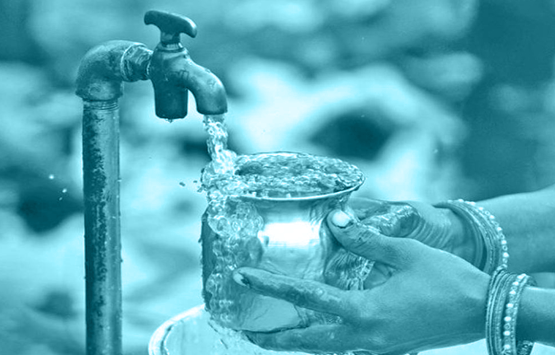
The Government of Pakistan recognizes access to drinking water and sanitation services as a fundamental human right as has been implied in the Constitution of Pakistan under Article 9 that “no person shall be deprived of life or liberty in accordance with law”. The Government of Punjab (GoPb) envisions providing safe drinking water facilities to the entire communities in equitable, efficient and sustainable manner.
Drinking Water supply is provided in rural areas of Punjab, Pakistan through “Rural water supply schemes (RWSS)” executed by Public Health Engineering Department (PHED), Govt of Punjab.
In regard to high number of non-functional water schemes and in-sufficient service delivery in rural areas of Punjab, Finance Minister, Government of Punjab Hashim Jawan Bakht directed Urban Unit to assess and develop framework on “Mechanism for Operation & Maintenance (O&M) of Rural Water Supply Schemes (RWSS)”. Objective of assignment was to provide a viable and sustainable framework for efficiently managing rural water supply system in Punjab.
O&M framework with its proposed options has been developed after evidence based technical, financial, institutional and legal assessment. The Urban Unit team carried out detailed technical and institutional assessment of present schemes system; identified existing gaps; calculated the optimum requirement of technical and financial resources; and developed O&M model framework with proposed Governance Structure.
Implementation of a technically and financially sustainable framework will result in the proficient operations of water supply schemes and enhanced service delivery in rural areas of Punjab.
Client: Housing Urban Development & Public Health Engineering Department (HUD&PHED), Punjab

The Urban Unit has developed Decision Support System Tool for Water Supply & Sanitation sector, which is being utilized in assessment and evaluation of new proposed development schemes and analysing alignment requirements. The results of the efficient management and querying ultimately leads to the reliable decision-making process, which helps organizations to deals with the existing situations and technological advancements. One of the key modules of the SDSS (Spatial Decision Support Systems) is the Water DSS. As the name implies, the Water DSS provides useful insights regarding the data in the Water sector and helps in the evolution and solution of existing challenges.
Client: Planning and Development (P&D) Board, Punjab
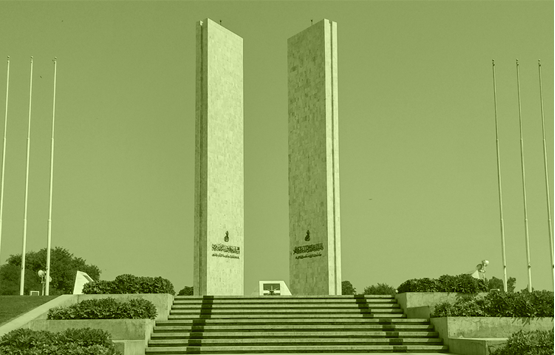
As per the direction of the Planning and Development Board, Government of Punjab, the Urban Unit was assigned the task of Regional Development Planning exercise to assess the existing situation as well as future endeavours of municipal services in line with relevant regulatory policies and strategies. The overall goal of the assessment and proposed development in WSS sector of Gujranwala Division is to provoke productivity, sustainability and competitiveness of urban and rural areas by reducing poverty; augmenting service delivery levels; improving the living conditions and quality of life (socio-economic condition) of the communities; and increasing standard of public health through reduction in water borne diseases.
The Urban Unit team coordinated and worked with representatives of Municipal Corporation and Public Health Engineering Department in urban area of six districts and rural area respectively for baseline data collection and planning and assessment of WSS system in Gujranwala Division.
The sectoral development plan identifies service delivery challenges including the prevalent gaps in terms of water supply and sanitation coverage and its quality of services and summarily recommends a road map in terms of projects digest to mobilize the priority-based resources and investments in rural and urban zones. Implementation of the plan will result in the efficient placement of systems and provision of the desired level of municipal services to the citizens.
Client: Planning and Development Board, Punjab, Punjab
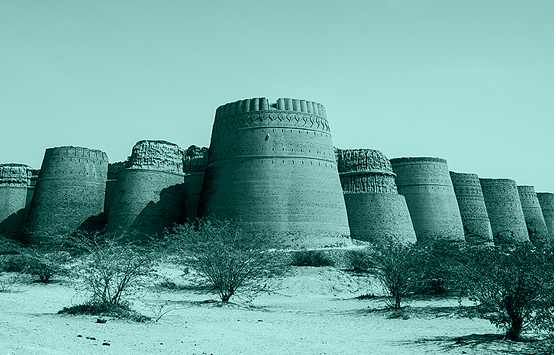
The Urban Sector Planning and Management Services Unit Pvt. Ltd. (The Urban Unit) employs a holistic approach to urban development that encompasses strategy, planning and world class technical design services based on integrated multidisciplinary skills. The Planning and Development (P&D) Board has engaged the expertise of the Urban Unit for the formulation of Integrated Master Plan of Cholistan. In Cholistan, the life expectancy, educational attainment, Schools, health facilities, access to water, sanitation, and roads are inadequate. Providing sufficient water of appropriate quality and sustainable sewerage system have been one of the most pressing issues in Cholistan. The development plan will cover situation analysis of existing WSS schemes and their mapping, feasibility study of the proposed schemes in the Cholistan Development Package and future recommendations for inclusive and sustainable development. The formulation of the Integrated Master Plan will work as an instrument for future planning and design of schemes aimed at elevating the standard of living.
Client: (P&D) Board, Punjab

Institutional capacity building is regarded as one of the essential development interventions by the Government to provide services on efficient and cost-effective basis. Al-Jazari Academy is one of the key strategic initiatives taken by Government of Punjab with JICA where technical and management trainings are provided to officials of service providers with the support of other international and national organizations working in the water sector. The objective of professional development of all WASAs in Punjab enable them in improving municipal services delivery system thereby ensuring healthy environment. WSS team of the Urban Unit is playing a significant role in providing training on Business Planning & Asset Management Courses to officials of WASAs. These management level training courses were successfully developed and delivered with JICA experts in four cycles (Phase-I) at Al-Jazari Academy in which more than 100 professionals of WASAs were trained. Currently team in association with JICA & AFD is working on planning and designing of training courses on Asset Management, Pipe Replacement Planning and Business Planning for professionals of WASAs.
Client: HUD&PHED/WASAs
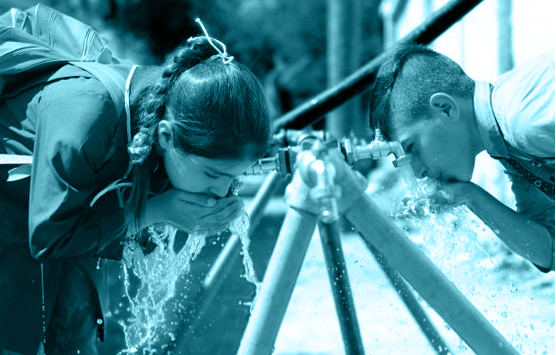
The Urban Unit was assigned the task by P&D Punjab to review and update the Punjab Drinking Water and Sanitation Strategy. The WSS team worked rigorously and reviewed and updated the said strategy in accordance with the prevailing status of water and sanitation related provisions and as per the need of time. Especial focus was given on clear roles and responsibility of departments, Monitoring & Evaluation section encompassing Implementation Framework of Asset Management Information System, Water Quality Surveillance and Water Metering in the strategy. The Punjab Drinking Water and Sanitation Strategy of the Government of the Punjab 2020 intends to guide and support provincial institutions, HUD&PHED, LG&CD, Entity, Local Government Institutions (TMAs, UCs), Regional Service Providers, CBOs and communities for developing an efficient, integrated, sustainable Urban and Rural Safe Drinking Water Supply System & its service deliver . The strategy provides an overarching framework for addressing the legal, regulatory, institutional, administrative and environmental issues and challenges faced by the water supply sector in Tehsil HQs, towns, urban and rural areas of Punjab.
Client: Planning and Development (P&D) Board, Punjab, Punjab

The Concept of Water Quality Management Nucleus as a single repository for integration of water quality data for relevant stakeholders was designed and proposed by Urban Unit WSS team to Government of Punjab. It was aimed to serve as the nucleus to connect all stakeholders with an objective to manage water contamination in a systematic way - involving activities of screening to locate and map areas of contamination (hotspots), improved diagnostics and health care protocols, developing alternative water supply options, and raising public awareness through information dissemination. On direction from housing department, the Urban Unit developed MIS based centralized water quality data observatory on scale of Punjab for analysis and identification of hotspot areas. The developed observatory was also launched at SCOSAN VII event in Islamabad Pakistan. Mapping of ground water quality has been done based on available secondary water quality data from different sources (Pakistan Council for Water Resources, Rural Water Program and UNICEF). The portal has the capacity to be upgraded for the inclusion of datasets from the whole country. On utilization by stakeholders, the Observatory can serve as dynamic data centre with information on contamination levels in groundwater sources. Mapping of water quality levels will be available on the web portal and will help future policy decisions.
Client: Housing Urban Development & Public Health Engineering Department (HUD&PHED), Punjab
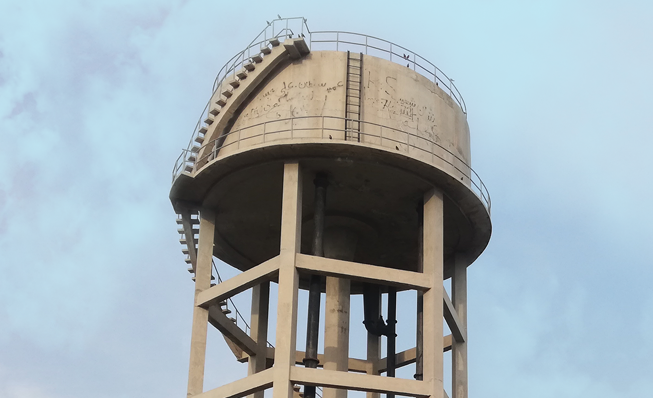
This project is aimed at improving water supply and sanitation (WSS) infrastructure in 200 small and medium cities in Punjab. Lack of asset information has resulted in poor operation and maintenance practices, leading to quick outliving of WSS assets. It proposes to tag, digitize, and assess the condition of WSS infrastructure, allied assets, and facilities, and develop a management information system (MIS)-based dashboard for investment planning and capacity building of local government officials.
The objective is to improve municipal service delivery through evidence-based planning and investment plans, and to align with government policies on achieving sustainable development goals. It will develop a digitized database, assess the condition of WSS infrastructure, and identify immediate investment and capacity needs for rehabilitation or replacement.
Client: Local Government & Community Development Department
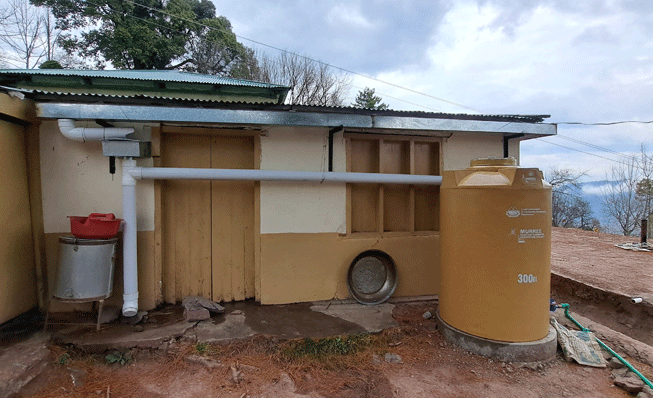
The project aims to install Rooftop Rainwater Harvesting Systems in 1100 households across MC Murree jurisdiction, ensuring a sustainable and efficient approach to water management. The scope of the project also includes detailed water quality assessments, community mobilization, and WASH (Water, Sanitation, and Hygiene), education. Monitoring & control center to ensure the project's success and sustainability.
The scope of the PC-I has been meticulously aligned with the Nationally Determined Contributions (NDCs), Sustainable Development Goals (SDGs), the Punjab Growth Strategy 2023, & Punjab Spatial Strategy 2047 ensuring that this initiative not only addresses the immediate water needs of MC Murree but also contributes to broader environmental and developmental goals.
Client: Local Government & Community Development Department
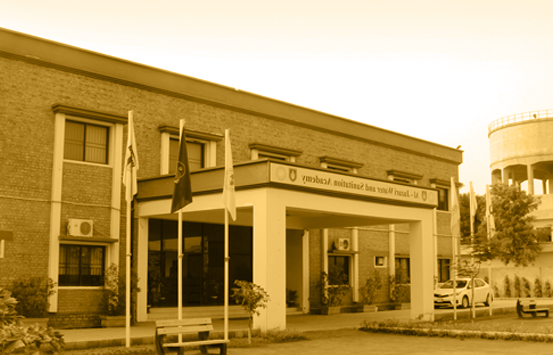
The Government of Punjab, under a strategic
initiative with Japanese International Cooperation Agency (JICA), established
the Academy to enhance operation, maintenance and management capabilities of
Water and Sanitation Agencies (WASAs) and other water-sector service providers
through training programs. The Academy builds on the mission to transform the
water and sanitation sector through leadership, innovation and trainings. Its
core objective is to build capacities of WASAs officials, Tehsil Municipal
Administrations (TMAs) and Public Health Engineering Department (PHED) staff,
and support them in acquiring knowledge, understanding, skills and values for
better service delivery and improved governance. JICA’s technical support is
available for curriculum development, training of faculty and WASA staff, for
and providing equipment to the Academy and on-job training centers. It offers a
platform where WASA stakeholders, faculty and researchers come together to
share their experiences and learning.
Al-Jazari Water and Sanitation Academy is a
purpose-built academy. The Academy is named after Badi? az-Zaman Abu l-?Izz
Isma?il ibn ar-Razaz al-Jazari (1136-1206), a renowned Muslim polymath,
scholar, inventor, mechanical engineer, artist and mathematician from Jazirat
ibn Umar (current Cizre, Turkey). To give him credit and celebrate his
significant work in mechanical engineering and technology, the Academy is named
after him.
Client: WASA Lahore
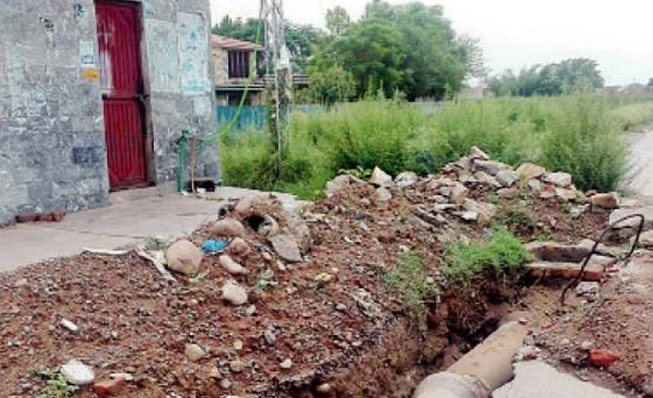
Gilgit city’s population at start of the project in 2015 was 362,154, projected to increase to 906,063 in the year 2035. Currently, no wastewater collection (sewerage) system exists in Gilgit city. ‘Few nullahs’ (sewage gullies) carry wastewater from some locations of the city area and dispose it into Gilgit River. With exception of ‘nullahs’, there is no proper sewer water disposal system in the city. Most households use individual soakage pits for disposal of grey water.
The Gilgit Development Authority (GDA) initiated a project of Sanitary Sewerage System with Treatment Plant for Gilgit city with cost of PKR 999.86 million. The Urban Unit and JERS Engineering Consultants won this project as a joint venture that includes topographic surveys, contour mapping and level surveying, mapping of the existing network and capacity evaluation, estimation of future projections of sewerage and waste water, and preliminary design along with rough cost estimation.
Based on aforementioned activities a Sewerage Master Plan was prepared showing the increase and decrease in project area, identification of priority areas to be served, the level of treatment required by the sewage treatment plant, land issues and socio-economic conditions.
As per the Master Plan, a proper sewerage system with treatment plant was proposed for Gilgit city. The city is divided into 11 zones based on topology of the area. Separate treatment facilities are proposed for each zone except zones 2 & 3. The consultant also carried out detailed design, construction design, construction supervision and environmental monitoring of the sewerage treatment plant at Gilgit city. Advance Activated Sludge Process as the sewage treatment method is under construction for zones 2 & 3 and septic tanks are proposed for all other zones.
Client: Gilgit Development Authority